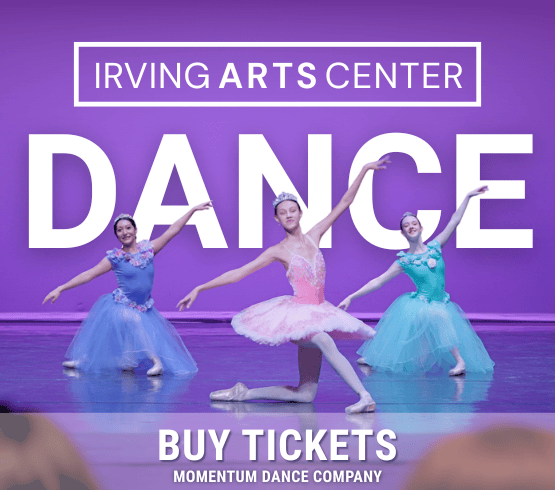Last month, B. Moore Dance released BOLD—BRILLIANT—BEAUTIFUL—YOU!, an hour-long dance experience that featured B. Moore company members performing a series of pieces alternately in different Dallas locations and against striking solid and patterned backgrounds added during post-production. Unlike some digital dance productions, BOLD—BRILLIANT—BEAUTIFUL—YOU! utilized a range of video editing techniques to color costumes, duplicate shots and figures, and cut from alfresco to simulated backgrounds.
“I decided to just make the sacrifice and stay up and edit it until I got done! And so I did! I got it done in a short period of time!” laughs Moore.
Founded in 2018, B. Moore Dance has made major waves in the dance community in a short period of time. Bridget Moore, whose background includes a three-year tenure as a Visiting Professor at Sungkyunkwan University in Seoul, South Korea, brings both local and international inspiration to her choreography. Last year, the company was selected to perform as part of the Dallas ATTPAC Elevator Project, and the company has already appeared on major stages across North Texas.
Despite being a new company that lacks extensive administrative support, B. Moore Dance has been hard at work since the outbreak of the pandemic.
In fact, Moore says emphatically, “We’ve been going nonstop since the pandemic has happened.”
Since the beginning of the global crisis, Moore has been impressed by the poise that the dancers have brought to their work and personal attitudes during a period of intense social and economic global upheaval. “We have such a great rapport with each other. We talk,” she says. Most importantly, Moore strives to make the studio a “sacred space” for the dancers, built on transparency between her own intentions as a leader and positive energy that fosters creativity.
She recalls one specific day when she and the dancers were gathered on Zoom. “I could tell that the dancers were a little down. I asked, ‘Is everybody ok?’…On this particular day, one of the dancers was like, ‘Can we just talk? Can we please just talk?’ So, we all sat down and spent, literally, the next three hours talking about what was happening in the world. This was around the killing of George Floyd…Many [dancers] were just trying to process how they were feeling. They were feeling really uncertain, and they needed a place where they could speak freely.”
Although she believes that Zoom did provide extra individualized attention to dancers, Moore, who describes herself as a “very process-oriented” choreographer, found that she relied on studio time to create. After five months of virtual class, the company was able to begin working in person again. As a small company, the biggest challenge to returning to in-person work was not developing safety protocols, which the company was able to do with careful planning. It was finding available studio space. Many city and private facilities had closed, and Moore initially struggled to find a place for the company to rehearse. Once Moore had made plans to schedule rehearsals at several private studios, the logistical work became less difficult.

1 ⁄5
Bridget L. Moore.

2 ⁄5
Uncharted Territory/The Pandemic.
Photo by Sharen Bradford.

3 ⁄5
Paige White and Dwayne Cook in Following Echoes II. Photo by Sharen Bradford.

4 ⁄5
Brittney Myers in Portraits of a Woman.
Photo by Sharen Bradford.

5 ⁄5
Anthony Wade in The Neglected Heart of Soul-Never Give Up. Photo by Sharon Bradford.
Along with the in-person premiere, B. Moore Dance has continued to develop virtual opportunities and dance experiences. The company has offered a variety of workshops for pre-professional and professional dancers since last August. This month, they are launching Global Connexion: A Virtual Dance Exchange that will offer a day-long schedule of classes led by dancers and instructors, including international leaders and members of the B. Moore company.
Moore also does not envision abandoning the virtual space anytime soon. “I am definitely not giving this up,” laughs Moore. “I enjoy it. I really do enjoy film.”
Despite the challenges the pandemic has posed to the company, Moore has visionary plans for the future. She wants to turn Global Connexion into an annual event, and she is looking forward to relaunching an apprenticeship program that had to be postponed because of the pandemic. She plans to continue to use her choreography to shed light on global and local issues. Eventually, she would like to establish a school.
Still, add Moore, “I can’t say that I focus too much on that. I just focus on doing the work. That is essentially the most important thing, to do the work, and to be brave in it.”
—LINDSAY ALISSA KING




